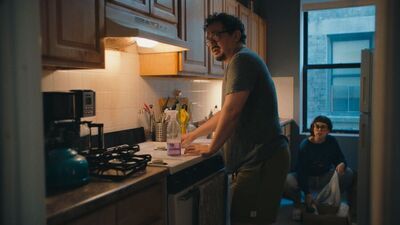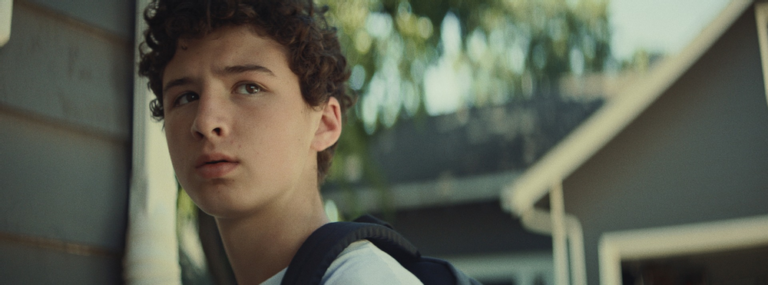Passages

Ira Sachs is one of American cinema’s most reliable crafters of human-scaled cinematic dramas. That description doesn’t sound too terribly exciting, so I should assure you that “Passages” is some kind of time at the movies—a briskly-moving, turbulent, emphatically sexy, deliberately exasperating love triangle in crazy times.
The times in this movie (which Sachs co-wrote with Mauricio Zacharias and Arlette Langmann) are crazy, however, because they’re self-perpetuated. While the movie’s set in contemporary Paris, there’s not much in the way of an outside world for its characters to contend with. “Passages” begins on a film set; the director is Tomas (Franz Rogowski), who’s making a period picture called, well, “Passages” (and while I rolled my eyes at this, the doubling of titles ultimately isn’t in the service of any particular meta conceit). Tomas is a tetchy auteur; he micromanages his extras, which means he doesn’t have an assistant director to whom to delegate that sort of work, or he’s just That Way. Evidence that follows strongly suggests the latter.
At the wrap party for the shoot, Tomas is joined by his husband, Martin (Ben Whishaw). After a little bantering about whether or not they’ll be dancing, the frustrated Tomas sashays onto the floor with Agathe (Adèle Exarchopoulos), who’s been hanging about the set. They’re intrigued by each other. Agathe has literally just dumped her boyfriend and is extremely available. Tomas, on the other hand, is, yes, married, but he’s also—well, the most charitable way to put it is that he’s very open to experience.
The extent to which Martin and Tomas’ relationship is open is never made explicit, but after spending the night with Agathe, Tomas is inclined to overshare and exuberantly. “I had sex with a woman. Can I tell you about it?”
Martin doesn’t respond enthusiastically, so Tomas continues, “It was exciting! It was something different.” Hey, welcome to the club, Tomas. Anyway. Martin finally responds, “This always happens when you finish a film.” While “Passages” doesn’t spend much time in Tomas’ editing room, its timeline terminates as his movie is about to go to Venice. So there is a subtext that we’re seeing this character in a certain extreme state, but “Passages” doesn’t belabor it; it certainly doesn’t try to use creative work stress to excuse his behavior. Switching up your sexual orientation is an unusual approach to post-production coping, you have to give Tomas that.
Franz Rogowski’s performance as Tomas is fascinating. How he manipulates those around him is enough to make him borderline repellent, and Rogowski, leaning hard into a speech impediment and all manner of slippery postures, imbues the character with near-rodent-like qualities. Yet one understands why both Agathe and Martin are so physically drawn to him.
And this is the other thing that makes “Passages” a compelling story: Neither Agathe nor Martin is inordinately weak. At different points in the narrative, they give in to Tomas and his whiny ways, but they’re not victims. Whishaw’s character is a printer with a sharp eye and a steady-as-she-goes confidence in himself. Exarchopoulos shows how Agathe gets swept up in Tomas’ off-the-wall enthusiasm but demonstrates her commitment to living life realistically, as her action after Tomas betrays her very bluntly shows.
After Tomas first takes up with Agathe—during which time he semi-submits to an interrogation from her parents, which may be the sole scene in the movie that compels the viewer to take his side for even a minute—Martin begins an affair with a brilliant young writer/editor, which he’ll cut off abruptly. The writer, Amad (Erwan Kepoa Falé, appealing and understated), understanding what’s up, tells Martin, “You’re weak, and you’re sick. You can’t see it yet, but you won’t survive this. Either of you.” The movie’s ending isn’t nearly so cataclysmic, but its views of a frantic but winding-down Tomas tell you that for all the havoc he’s wreaked, he’s learned exactly nothing. And that he will keep doing what he does and learning nothing until he burns out.
Now playing in theaters.





